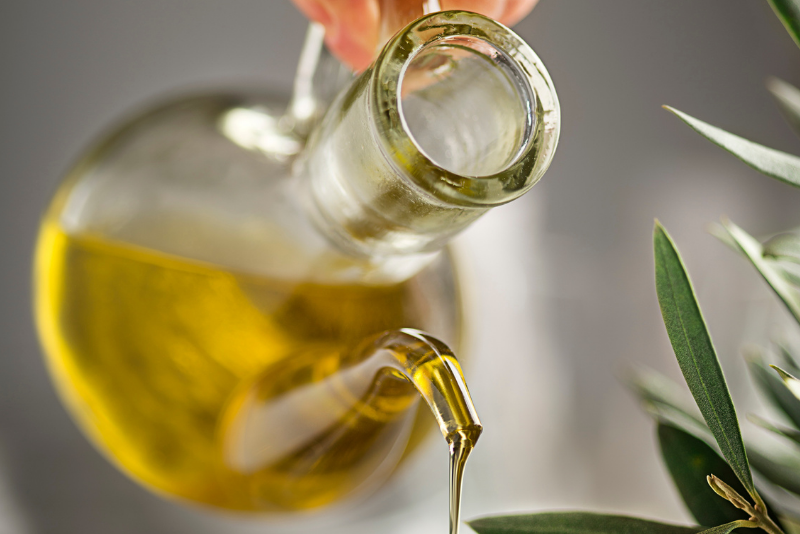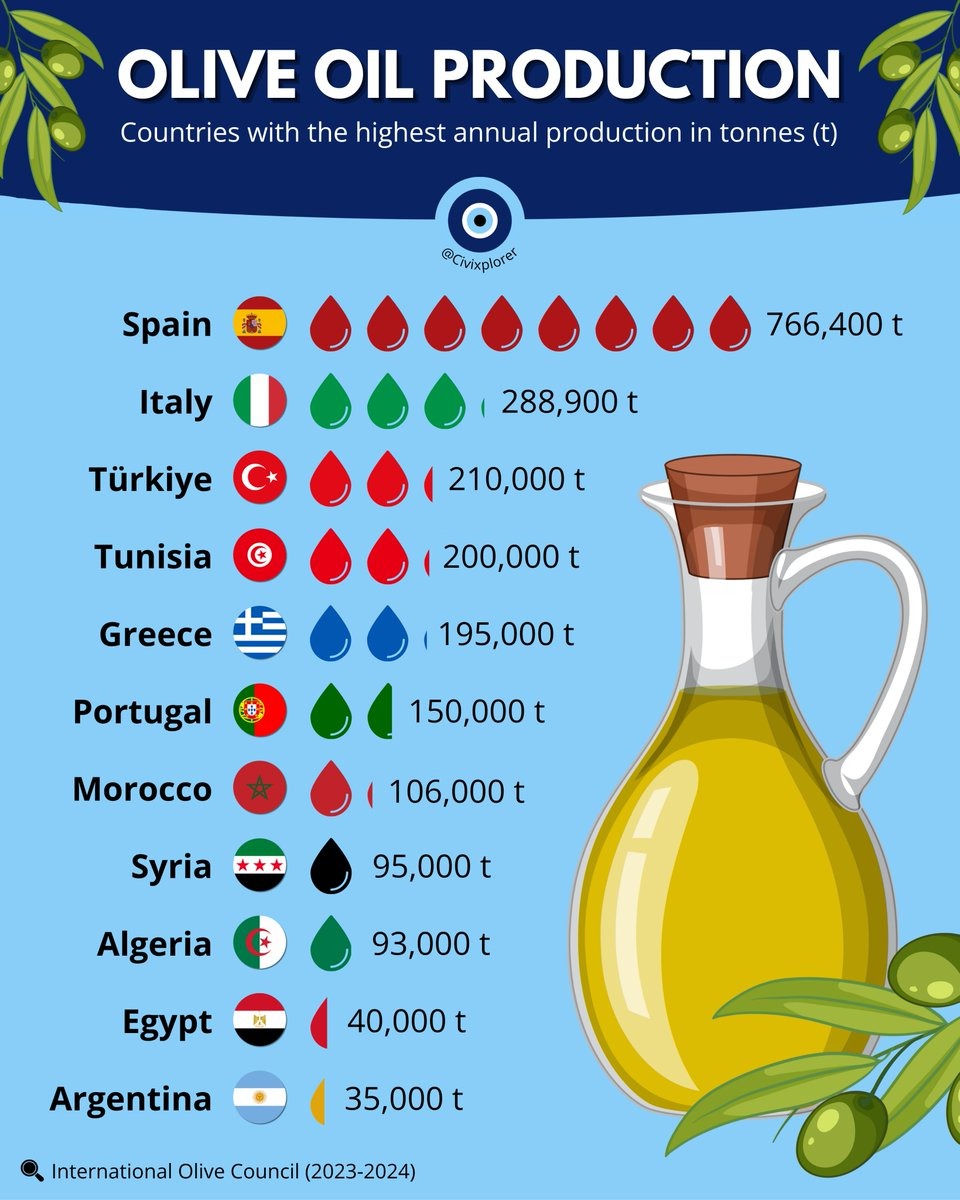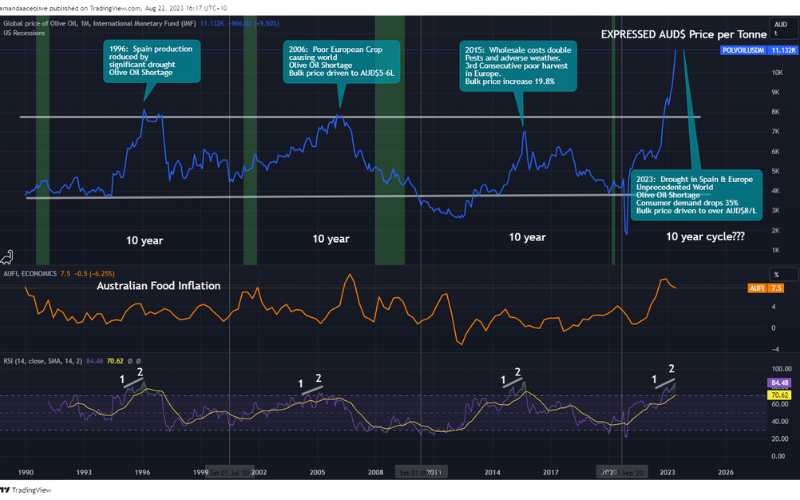My Shopping Cart
My Shopping Cart
| Specification | LO6 Model | LO7 Model | LO7 HC Model |
|---|---|---|---|
| Technology | Pulsed Electric Field (PEF) | Pulsed Electric Field (PEF) | Pulsed Electric Field (PEF) – High Capacity |
| Application | Olive oil extraction – post crusher | Olive oil extraction – post crusher | Olive oil extraction – post crusher |
| Construction Material | AISI 304 Stainless Steel | AISI 304 Stainless Steel | AISI 304 Stainless Steel |
| Dimensions (L × W × H mm) | 700 × 1000 × 1800 | 800 × 1200 × 2080 | 1000 × 1300 × 2300 |
| Weight | 850 kg | 1050 kg + 200 kg (chiller) | 1250 kg + 200 kg (chiller) |
| Processing Capacity | Up to 5 t/h (≈120 t/day) | Up to 10 t/h (≈250 t/day) | Up to 20 t/h (≈500 t/day) |
| Pipe Interface | 2” SMS Male Union (Ø 63.5 mm) | 3” SMS Male Union (Ø 76.1 mm) | 4” SMS Male Union (Ø 101.6 mm) |
| Pressure Drop | ≈1 bar @ 6 m³/h | ≈1 bar @ 10 m³/h | ≈1 bar @ 18 m³/h |
| Energy Consumption | 15 kW (22 A @ 400 V AC, 3-Phase) | 22 kW (32 A @ 400 V AC, 3-Phase) | 35 kW (50 A @ 400 V AC, 3-Phase) |
| External Chiller | 2.0 kW, 16 A | 2.5 kW, 16 A | 3.0 kW, 20 A |
| Pulse Power | 8 MW | 12 MW | 20 MW |
| Internet Connectivity | Ethernet RJ45 | Ethernet RJ45 | Ethernet RJ45 |
| Operating Mode | Automatic Continuous | Automatic Continuous | Automatic Continuous |
| Compliance | CE, EU Food Safety Standards | CE, EU Food Safety Standards | CE, EU Food Safety Standards |
| Feature | LO6 | LO7 | LO7 HC |
|---|---|---|---|
| Processing Capacity | Up to 5 t/h (≈120 t/day) | Up to 10 t/h (≈250 t/day) | Up to 20 t/h (≈500 t/day) |
| Pulse Power | 8 MW | 12 MW | 20 MW |
| Energy Consumption | 15 kW (22 A @ 400 V) | 22 kW (32 A @ 400 V) | 35 kW (50 A @ 400 V) |
| Dimensions (L × W × H mm) | 700 × 1000 × 1800 | 800 × 1200 × 2080 | 1000 × 1300 × 2300 |
| Weight | 850 kg | 1050 kg + 200 kg (chiller) | 1250 kg + 200 kg (chiller) |
| Pipe Interface | 2” SMS Male Union (Ø 63.5 mm) | 3” SMS Male Union (Ø 76.1 mm) | 4” SMS Male Union (Ø 101.6 mm) |
| External Chiller | 2.0 kW, 16 A | 2.5 kW, 16 A | 3.0 kW, 20 A |
| Application Scale | Small to medium mills (modular setup) | Medium to industrial mills | High-capacity industrial plants |
| Automation System | Siemens-based PLC + touchscreen HMI | Siemens-based PLC + AI-assisted control | Siemens-based PLC + AI-assisted control |
| File | Title | File Description | Type | Section |
|---|---|---|---|---|
| TOC_OPTICEPT_LO_Digital_Brochure_2025_1.pdf | Opticept Brochure | Brochures | Document |
INDUSTRY NEWS

The NSW Department of Primary Industries’ (DPI) Wagga Wagga Edible Oils Laboratory - a cornerstone of Australia’s olive and oilseed testing infrastructure - is expected to cease operations by Christmas 2025, with sample submissions accepted only until mid-November. The closure represents a significant loss for growers, processors, and exporters who have relied on the lab’s internationally accredited testing services for more than two decades.
Located within the Wagga Wagga Agricultural Institute, the DPI’s edible oils laboratory has been one of Australia’s few facilities accredited to NATA, AOCS, and International Olive Council (IOC) standards. It has played a critical role in verifying olive oil quality, authenticity, and export compliance, as well as providing trusted testing for canola and other oilseeds.
The lab’s closure follows the NSW Government’s announcement of widespread job cuts across the Department of Primary Industries - around 165 positions statewide - raising alarm among regional industries dependent on these essential technical services.
According to industry updates, the Wagga team will continue accepting samples until approximately 14 November 2025, before winding down operations ahead of Christmas. After that point, testing services will no longer be available through the Oil Testing DPI Laboratory.
While the department has yet to make a detailed public statement about the transition plan, producers are being advised to prepare for changes now, especially those requiring export certification or routine oil-quality analyses.
The loss of this facility is being described as a major setback for the Australian olive industry, particularly for small to mid-sized growers in New South Wales and surrounding regions. The Wagga lab’s proximity and affordability have long made it a practical option for quality assurance, benchmarking, and product validation - key factors in maintaining consumer trust and market competitiveness.
Its closure could mean:
With the Wagga Wagga laboratory closing, industry attention is turning toward Modern Olives Laboratory Services in Victoria, which offers a full suite of IOC-listed testing options, though it is not currently IOC-accredited for olive oil and related products in 2025. Modern Olives Laboratory holds AOCS recognition for both chemical and sensory analysis for 2025, as well as a TGA licence covering chemical and physical testing of olive oil derivatives and microbiological testing of olive derivatives only.
Modern Olives is a long-established recognised testing facility providing analytical services to growers, processors, and exporters across Australia and overseas. More information about their services can be found at:
Industry leaders are urging state and federal governments to engage with the olive and edible oil sectors to ensure a smooth transition of testing capabilities and protect the integrity of olive oil standards. Without a coordinated plan, the risk grows that smaller producers could lose access to affordable, timely, and accredited testing - jeopardising both domestic labeling compliance and export eligibility.
As Australia continues to strengthen its reputation for high-quality, traceable olive oil, maintaining a strong laboratory infrastructure is essential. The Wagga Wagga lab’s closure marks the end of a chapter in regional agricultural science, but it also highlights the need for ongoing investment in independent, nationally recognised testing to support the industry’s future growth.
For further information:
MARKET INSIGHT: GLOBAL OLIVE OIL ECONOMY 2023
Introduction
The global olive oil industry in 2023 has entered uncharted territory, experiencing an extraordinary surge in olive oil prices driven by a combination of climatic and economic forces. At the centre of this crisis lies Spain’s devastating drought, which has crippled the world’s largest olive oil producer. This severe shortage has led to a dramatic contraction in olive oil supply, triggering price escalation and a corresponding decline in consumer demand. The ripple effects are being felt worldwide, reshaping the balance between producers and consumers alike. Meanwhile, Australian olive oil producers find themselves in a rare position of advantage, benefitting from unprecedented market highs. This article explores the causes, consequences, historical trends, and economic signals surrounding this remarkable global olive oil price spike.

The ongoing drought across Spain stands as the principal factor behind the current olive oil price surge. As one of the largest olive oil-producing nations globally, Spain’s drastically reduced harvest - caused by months of extreme heat and minimal rainfall - has sharply curtailed olive oil availability in both European and international markets. This has intensified supply shortages, compelling consumers to pay more for what has long been a staple Mediterranean product. The interplay of limited supply and escalating demand has magnified price volatility, reinforcing the classic supply-and-demand imbalance now driving global markets.
Incredible to see the olive groves of Jaen, Spain. This one province produces around a fifth of the *entire* global supply of olive oil
— Secunder Kermani (@SecKermani) August 31, 2023
But a combination of drought & extreme heat has left many trees badly weakened... This years harvest looks set to be the worst in living memory pic.twitter.com/QYs41eXCwC
As prices have risen steeply, the shortage of olive oil has led to a noticeable decline in consumption, particularly in Spain, where demand has reportedly dropped by around 35%. Consumers are now scaling back their purchases, finding olive oil increasingly unaffordable compared to other cooking oils. The once-steady household consumption patterns are shifting as people seek alternatives or modify their cooking habits. This contraction in domestic demand not only highlights the growing accessibility gap for consumers but also underscores the broader economic strain caused by high inflation and food price increases.
Amid the turmoil, Australian olive oil producers are experiencing a windfall. Thanks to limited global supply, Australian growers are commanding record prices exceeding AUD $8 per litre, marking the highest levels ever recorded in the nation’s olive oil industry. This lucrative period presents a rare opportunity for Australian exporters, with demand from Europe - including Spain itself - now turning toward Australian supplies. For producers Down Under, this unique reversal of roles underscores how regional climate resilience and diversified production can translate into significant financial gains when global shortages arise.
The olive oil market’s volatility is not a new phenomenon. Previous spikes occurred in 1996, 2006, and 2015, each triggered by weather-related supply constraints. Yet, the 2023 price explosion stands out as the most dramatic in recorded history -over 40% higher than any previous price peak, and roughly double the magnitude of earlier surges. This extreme escalation reflects not just climatic hardship but a clear pricing bubble forming within the market, echoing the cyclical nature of commodity pricing.
The olive oil sector has long followed cyclical pricing patterns, typically alternating between low and high price phases roughly every decade. The current surge aligns almost perfectly with the predicted start of another 10-year cycle, occurring just three years into its anticipated timeline. Furthermore, a notable correlation has been identified between the Australian Food Inflation Index and the Global Olive Oil Price Index as reported by the International Monetary Fund (IMF). This connection illustrates the deep interdependence between food commodity pricing and global economic conditions.
While the IMF’s benchmark prices are denominated in USD, for the purposes of this analysis they have been converted to AUD to track the trend relative to Australian markets. These benchmark indicators -based on the world’s largest olive oil exporters -serve as a reliable gauge of overall market direction, confirming how global shortages and inflationary pressures move in tandem.
 Global olive oil prices show a recurring 10-year cycle, driven by droughts, crop shortages, and rising production costs
Global olive oil prices show a recurring 10-year cycle, driven by droughts, crop shortages, and rising production costs
From a technical analysis perspective, the Relative Strength Indicator (RSI) is often used to measure price momentum and potential overextension in markets. On recent olive oil price charts, the RSI (represented in purple) indicates that prices have once again entered overbought territory - a level seen during previous speculative phases. Historically, such readings have preceded market corrections or reversals, suggesting that the current surge may not be sustainable in the long term.
Analysts caution that as the European olive harvest begins in September and October 2023, an influx of new oil supplies could help ease prices, though the timing and extent of this correction remain uncertain. Until then, speculative trading and limited inventory continue to support inflated market values.
The record-breaking olive oil prices of 2023, primarily triggered by Spain’s drought-induced production collapse, mark a turning point for the global olive oil economy. With consumer demand declining under the pressure of soaring prices and Australian producers thriving amid the scarcity, the industry is experiencing a dramatic rebalancing. Historical precedents, cyclical trends, and market indicators all point toward a complex, transitional period defined by volatility and uncertainty.
As the world’s producers, traders, and consumers adapt to these new market dynamics, one truth remains clear: olive oil - celebrated for its taste, health benefits, and cultural significance - continues to be at the mercy of both climate change and economic cycles. Stakeholders across the value chain must remain alert, flexible, and forward-thinking as the olive oil market navigates this extraordinary phase of transformation.
Other Sources